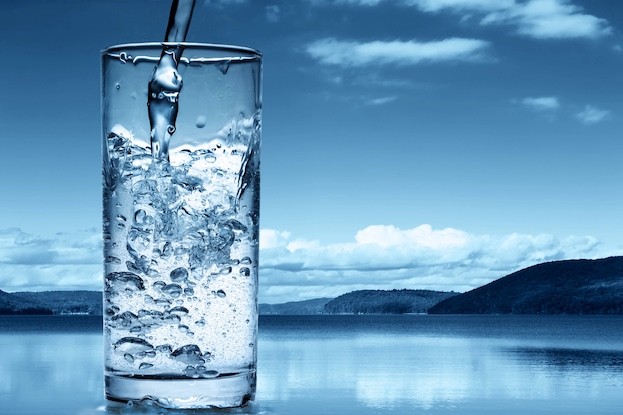Water is undoubtedly our most important commodity. We consume it every day, prepare meals with it, and use it for countless purposes in our everyday lives. What many people don't realize, however, is that the quality of our tap water can vary greatly. Although Germany has high standards for drinking water quality compared to other countries, pollutants such as nitrate, pharmaceutical residues, heavy metals, and microplastics can find their way into our drinking water. A modern reverse osmosis system can be the solution here – it effectively filters out contaminants and delivers the purest drinking water directly to your home.
Why water quality is crucial for our health
Our bodies are made up of approximately 60 percent water. It's involved in almost all metabolic processes, transports nutrients, and helps our bodies eliminate toxins. The quality of the water we consume daily therefore has a direct impact on our health and well-being.
Numerous studies show that long-term exposure to certain substances in water can lead to health problems. Of particular concern are:
- Heavy metals such as lead, mercury or copper
- Nitrates from agriculture
- Drug residues that enter the water cycle via wastewater
- Microplastics, whose long-term effects on the human organism are still being researched
- Hormones and other endocrine disruptors
A high-quality water filter system can effectively remove these substances from tap water, ensuring pure and healthy drinking water.
Understanding how modern water filtration systems work
Modern water treatment systems operate on the principle of reverse osmosis. This process was originally developed for space travel and has now also become established in the private sector. But how does such a system actually work?
The principle of reverse osmosis
In reverse osmosis, tap water is forced under pressure through a semipermeable membrane. This membrane is so fine that practically only water molecules can pass through. Larger molecules such as pollutants, bacteria, and even most minerals are trapped. The result is extremely pure water, free of virtually all contaminants.
High-quality water filter systems have a multi-stage filter system:
- Pre-filter: Remove coarse impurities such as sand, rust or sediments
- Activated carbon filters: Reduce chlorine and organic compounds
- Osmosis membrane: The heart of the system filters the smallest particles
- Post-filter: Provides final cleaning and optimizes taste
The advantages of your own water filter system
Installing a high-quality water filtration system in your home brings numerous benefits:
Health benefits
The most obvious benefit is improved water quality. You significantly reduce your intake of potentially harmful substances. This is especially important for sensitive individuals, small children, and pregnant women.
Taste improvement
Filtered water tastes significantly better. Without chlorine, metals, or other contaminants, the taste is purer and more pleasant. This is also noticeable when preparing coffee, tea, or dishes, which taste more intense and aromatic with filtered water.
Environmental protection and sustainability
With your own water filtration system, you can significantly reduce your plastic waste. No more lugging water bottles, no more recycling hassles – you simply tap your high-quality drinking water directly from your own tap. This way, you not only save money but also make an active contribution to environmental protection.
Convenience in everyday life
Another advantage that shouldn't be underestimated is convenience. You have access to the purest drinking water at any time without having to carry heavy bottles. Modern systems also offer different water temperatures at the touch of a button – ideal for preparing baby food, tea, or other hot beverages.
Water filter systems for different needs
Depending on your individual requirements and spatial conditions, there are different types of water filter systems:
Counter-top osmosis systems
These compact devices are simply placed on the counter-top and are ready to use immediately. They do not require a permanent water connection and are therefore also suitable for rental properties or mobile use (e.g., in a camper van). An integrated tank stores the filtered water, ensuring it is always available.
Undersink osmosis systems
These systems are permanently installed under the sink and connected directly to the water supply. They save space and generally offer higher filtration performance than counter-top models. The filtered water is dispensed through a separate faucet on the sink.
Water filter systems with additional functions
Many modern systems offer additional options in addition to the pure filter function, such as:
- Different water temperatures (cold, warm, hot)
- Special baby food function with optimal temperature
- Automatic descaling and disinfection
- Intelligent displays to monitor filter changes
- Structuring of water for improved bio-availability
What to consider when purchasing
When choosing a suitable water filter system, you should pay attention to the following aspects:
Filter quality and capacity
The quality of the filters used is crucial for the effectiveness of the system. Pay particular attention to the quality of the reverse osmosis membrane and a multi-stage filtration system. The filter capacity should also match your daily water needs.
Maintenance effort and follow-up costs
Every filtration system requires regular maintenance and filter replacement. Learn about recommended filter replacement intervals and replacement filter costs. For some systems, changing filters is easy to do yourself, while others require professional assistance.
Installation requirements
Consider where and how you want to install your system. Do you need a permanent water connection or do you prefer a portable system? Do you have enough space at the intended location? Clarify these questions in advance to avoid any unpleasant surprises later.
Certifications and quality standards
Pay attention to appropriate certifications and quality standards. Reputable manufacturers have their products regularly tested and certified by independent institutes.
Conclusion: Investing in health and quality of life
A high-quality water filtration system is more than just a technical device—;;it's an investment in your health and quality of life. The benefits range from better taste and greater water purity to environmental protection and increased convenience in everyday life.
In a time when we are increasingly confronted with environmental pollution and contaminants, the quality of our drinking water is becoming increasingly important. A dedicated filtration system gives you back control and allows you to enjoy one of the most important foods in the highest quality – every day, straight from your tap.
Once you've experienced the difference between filtered and regular tap water, you'll never want to go without it again. It's a choice for greater purity, better taste, and ultimately, greater well-being – day after day.







